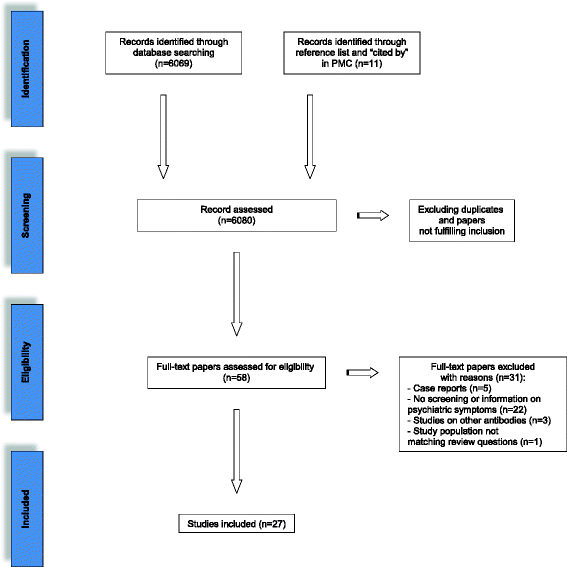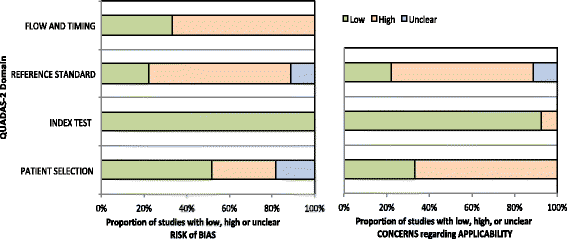What is the significance of onconeural antibodies for psychiatric symptomatology? A systematic review
- PMID: 28468645
- PMCID: PMC5415831
- DOI: 10.1186/s12888-017-1325-z
What is the significance of onconeural antibodies for psychiatric symptomatology? A systematic review
Abstract
Background: Patients with intracellular onconeural antibodies may present with neuro-psychiatric syndromes. We aimed to evaluate the evidence for an association between well-characterized onconeural antibodies and psychiatric symptoms in patients with and without paraneoplastic central nervous system syndromes.
Methods: Eligible studies were selected from 1980 until February 2017 according to standardized review criteria and evaluated using Quality Assessment of Diagnostic Accuracy Studies-2 (QUADAS-2). We included studies describing the psychiatric symptomatology of onconeural antibody positive patients and the prevalence of onconeural antibodies in patients with psychiatric disorders.
Results: Twenty-seven studies met the inclusion criteria. Six studies reported on the prevalence of well-characterized onconeural antibodies in patients with different psychiatric disorders, ranging from 0% to 4.9%. Antibody prevalence in controls was available from three studies, ranging from 0% to 2.8%. Data heterogeneity precluded a meta-analysis. Two cerebrospinal fluid studies found well-characterized onconeural antibodies in 3.5% and 0% of patients with psychotic and depressive syndromes, respectively.
Conclusions: The available evidence suggests that the prevalence of well-characterized onconeural antibodies in patients with psychiatric disorders is generally low. However, the question whether onconeural antibodies are important in select patients with a purely psychiatric phenotype needs to be addressed by appropriately designed studies in the future.
Keywords: Anti-neuronal antibodies; Onconeural antibodies; Paraneoplastic neuro-psychiatric syndromes; Review.
Figures
References
Publication types
MeSH terms
Substances
LinkOut - more resources
Full Text Sources
Other Literature Sources
Medical
Miscellaneous



